These Are the People in Your Neighborhood: Charlie Manuel
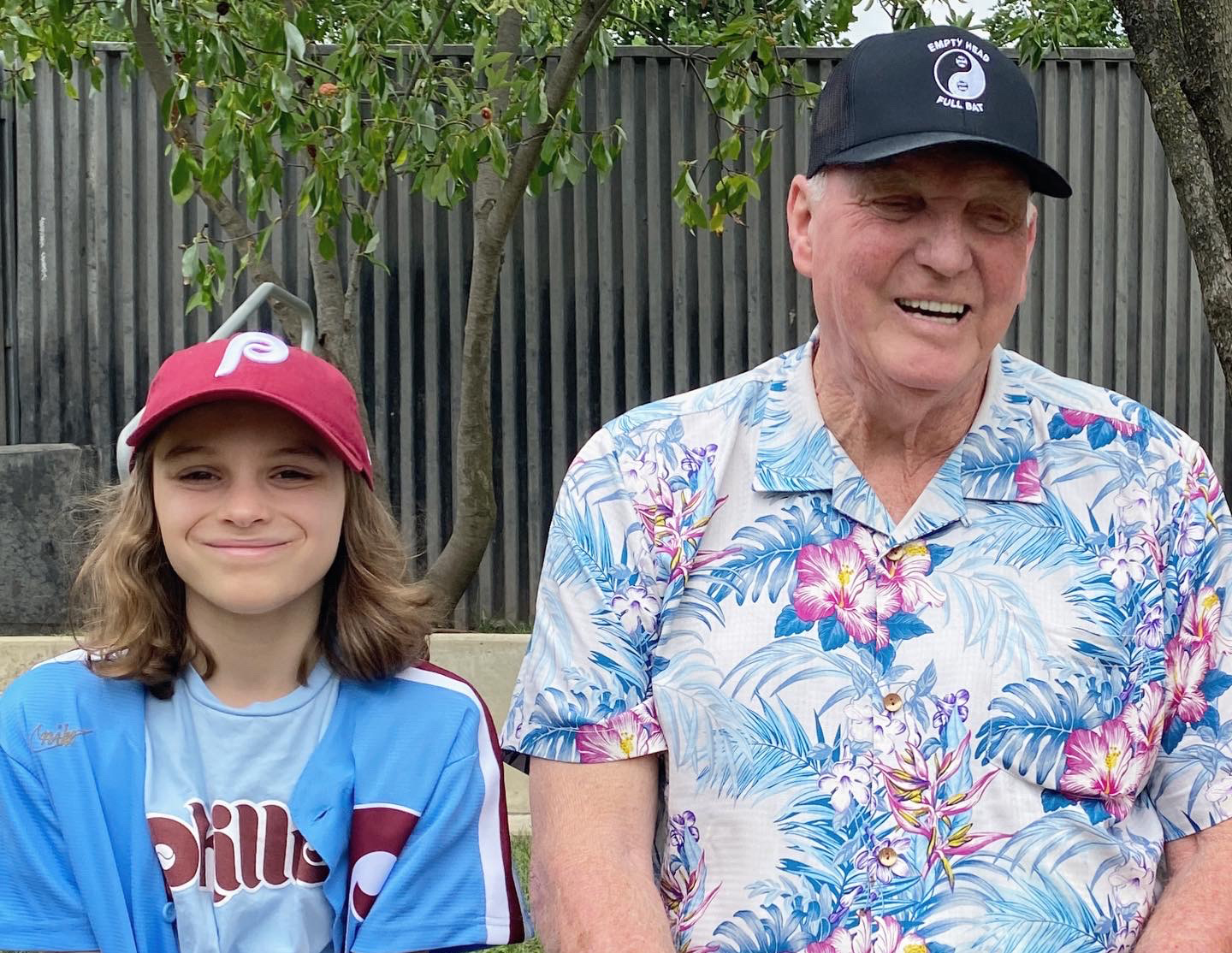
When I created Hog Island Press over a decade ago, it served two primary intentions: to create shirts for my friends and I to wear when we went to Phillies games, and to celebrate what living life in Philadelphia felt like to us. Often those goals would overlap, and magic got made. This was still very much before my circle of friends started raising families, and we all did our best to take full advantage of the things that the city had to offer a young population with energy, optimism, and total freedom.
In addition to selling shirts and prints on the website, I would also publish something of a periodical Q & A sidecar that I called “These Are the People in Your Neighborhood.” In it were featured various friends and public figures - artists, business owners, chefs, entertainers, etc - all of them influential on the Hog Island Press universe in their own unique way. They all were asked a similar series of hard-hitting questions, the most vital possibly being, “What’s your favorite sandwich in Philadelphia?”
Time marched on, the Hog Island Press brand evolved, and many wonderful times were had. It has truly been a fascinating ride, and if you’re reading this, thank you for being a part if it. Along the way my wife Jen and I made a pair of great little humans, we kept going to Phillies games, and continued to chase adventure in the city that we love with our friends - albeit it with much more reasonable bedtimes. But the original intent of Hog Island Press remained intact.
One thing that did get lost in the sauce, however, was the “These Are the People in Your Neighborhood” feature. And recently I've been asking myself if I should dig up the old archive, or possibly even create a few new chapters? Then it dawned on me: I think I (we) may already have. You see, over the past two years our oldest child and resident baseball historian, Rex, has been hosting our pal and collaborator Charlie Manuel for some informal interview sessions that paralleled Charlie’s collaboration with Hog Island Press, a project that we call “Charlie Knows Best.” Truly a legend and as real deal as they come, he's been an absolute blast to “make some shirts and do some good” with. There's a few in the shop now, and we look forward to releasing some more products soon.
And seeing as how it would likely be impossible to find another person that has been as much of a cultural influence on the how and the why Hog Island Press even exists, publishing these conversations that Charlie had with my son is something of a full circle dream come true. Lessons from Walter Alston, rivalries with Sadaharu Oh, tales from 2008 - heck, Rex even asked Charlie what his favorite Philadelphia sandwich is! It turns out the latest installment of “These Are the People In Your Neighborhood” has already happened. And like that, magic got made again.
So hey - thanks again for your support, it means a lot. And without any further ado, I present to you: “These are the People in Your Neighborhood: Charlie Manuel”
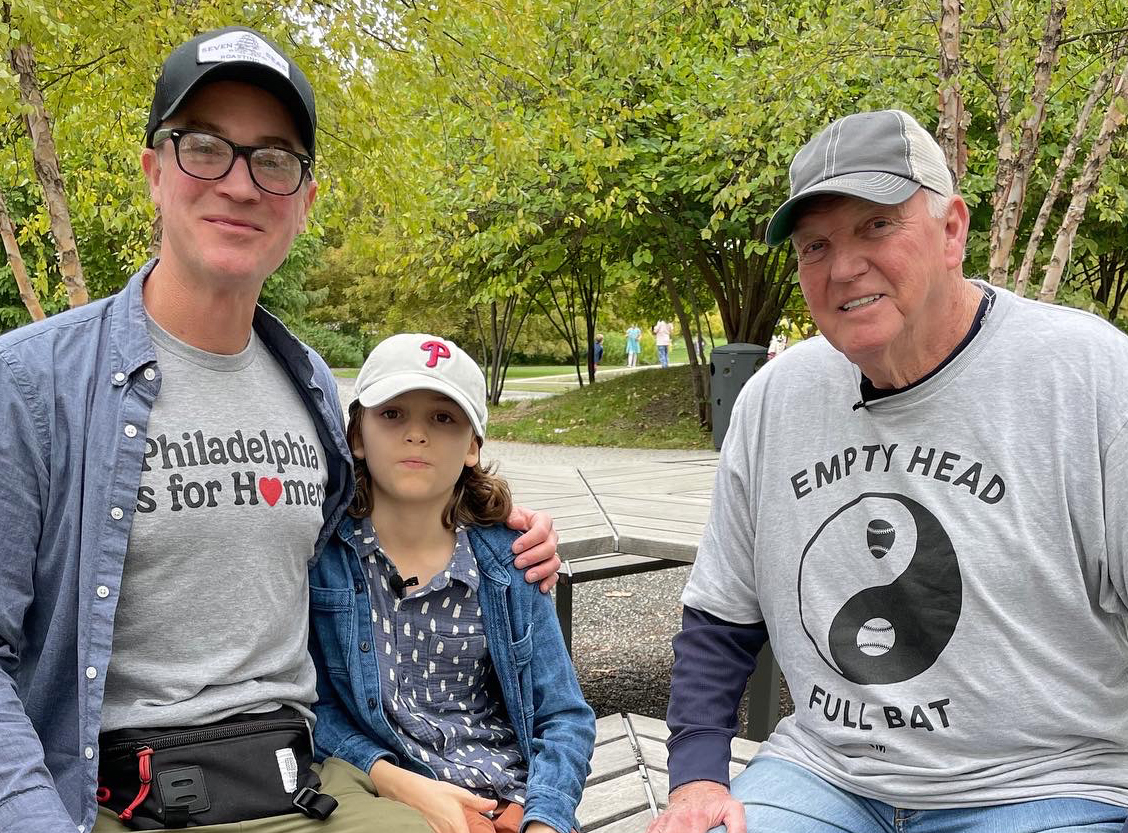
Hi fans, Rex Adams here for Hog Island Press with the greatest Phillies manager of all-time: Charlie Manuel. My dad says that “Charlie Knows Best,” and today I’d like to ask him a few questions. Hi Charlie, how are you doing?
Hi, Rex. I’m great, how are you doing?
Good, thanks. When you were a kid, who was your favorite player?
Ted Williams.
Who taught you about baseball when you were growing up?
When I was growing up, I lived in Southwest Virginia. I had five brothers, but they were all younger, so I didn’t really have anyone to play baseball with me. I got interested in baseball with my grandfather, who worked in a lead and zinc mine in Austinville, Virginia. He used to take me to see semi-pro games. I was probably six or seven when I got really interested in baseball. I used to listen to the radio back then, when they’d have the games on. Most of these were on the weekend, and I would listen with my grandfather.
I carved my own bats out of limbs or poles, and I’d hit rocks all of the time. I also got these rubber balls that you could buy at the five and ten cent store. And I would take one of those rubber balls and hit it up in the air, and then I’d get my glove and go catch it. I bought my first glove at Sears and Roebuck. My dad gave me this credit card, and I had a hard time getting that glove - my father had to get on the phone and talk with them. Once I got that glove, I’d throw that rubber ball against our cinder block house. The house was painted white and I’d throw this ball and catch it as it would come off, but at the same time the house would get real dirty. My father would get mad and make me paint it, haha.
Once I got into about the 4th or 5th grade, I went to this grade school and we played at recess. I got really into it, and we would practice all the time. But I can tell you this: on my first little league team I got cut, haha. I had a new pair of spikes - my shoes had come into the post office about 5:30 or 6:00 in the morning, and I ran all the way down from my house about 3 or 4 miles away. I got my shoes and I put them on - I wore them all the way back to my house. And then the next day I go out to try to make the team, I got cut!
It took me a while, but in 7th and 8th grade - that was then I started playing in school. I always had good coaches. We always had places to play, and the coaches took a lot of time helping us. From there I was like a baseball fanatic. I liked every sport, but baseball was always my favorite.
Did you have any heroes from other sports growing up?
Yes, I sure did. For instance in football, there were guys like Eddie LeBaron - who was a quarterback who played for Washington. I liked a lot of Baltimore Colts players - especially on defense. Too Tall Jones and all those guys. And then later on, I liked the big name quarterbacks.
I kept up with basketball - Wilt Chamberlain was one of the first guys that I really liked. And then later on I liked Jerry West and Oscar Robertson. When I was in high school, I made a Dell Magazine second team All-American basketball team - that’s when Lew Alcindor was in high school. He was a big-time player, and one of my idols when I was playing.
Who was your favorite teammate ever?
My favorite teammate ever was Bob Allison. When I was in the minor leagues he was a big league player in Minnesota, and every time that I would see him he would always talk with me. He was a big, robust guy - he was a fullback at the University of Kansas, an all-American - and he was one of the famous players on the Twins at that time.
At my first major league camp, my locker was put between him and Harmon Killebrew. Allison was on my left, and Killebrew was on my right. I got to know him real good. After the first game of the season he comes over and he tells me, “Hey rookie, I want you to come with me tonight - myself, Harmon and Ted Ulhlaendar are going out. We’re gonna buy you all the food that you want, and things like that, but you just sit there and shut your mouth. We’ll tell you when to talk.” Haha, I didn’t know how to take that, but from then on he was a really good friend of mine.
He once took me to a place in Chicago where they put your initials and stuff on your shirts - I never really had dress shirts, and they put my initials on these shirts after they tailor-made them. He always took care of me, gave me clothes, and to this day I still think of him as a great friend. He’s passed away, but I miss him, and think about him a lot.
Who was the best manager that you ever played for?
I tell people all the time - and it’s a good question - but I tell them this and I hope that you understand: for one year, Billy Martin. For ten years, Walter Alston, haha. Billy was a guy that was really upbeat, a real go-getter with a lot of energy. But Alston was, for a long-term manger, very unique, and a really solid person.
You played with some of the best players in MLB history. From your perspective, who were some of the greatest hitters?
The days when I played - Hank Aaron and Willie Mays. And when I first came to the big leagues, there was Al Kaline. I actually played with three really good hitters on my team in Minnesota: Harmon Killebrew, Tony Oliva - who just went into the HOF - and Rod Carew, who won 6, 7, or 8 batting titles. Carew also played with me during my minor league days. These three guys were big-time hitters.
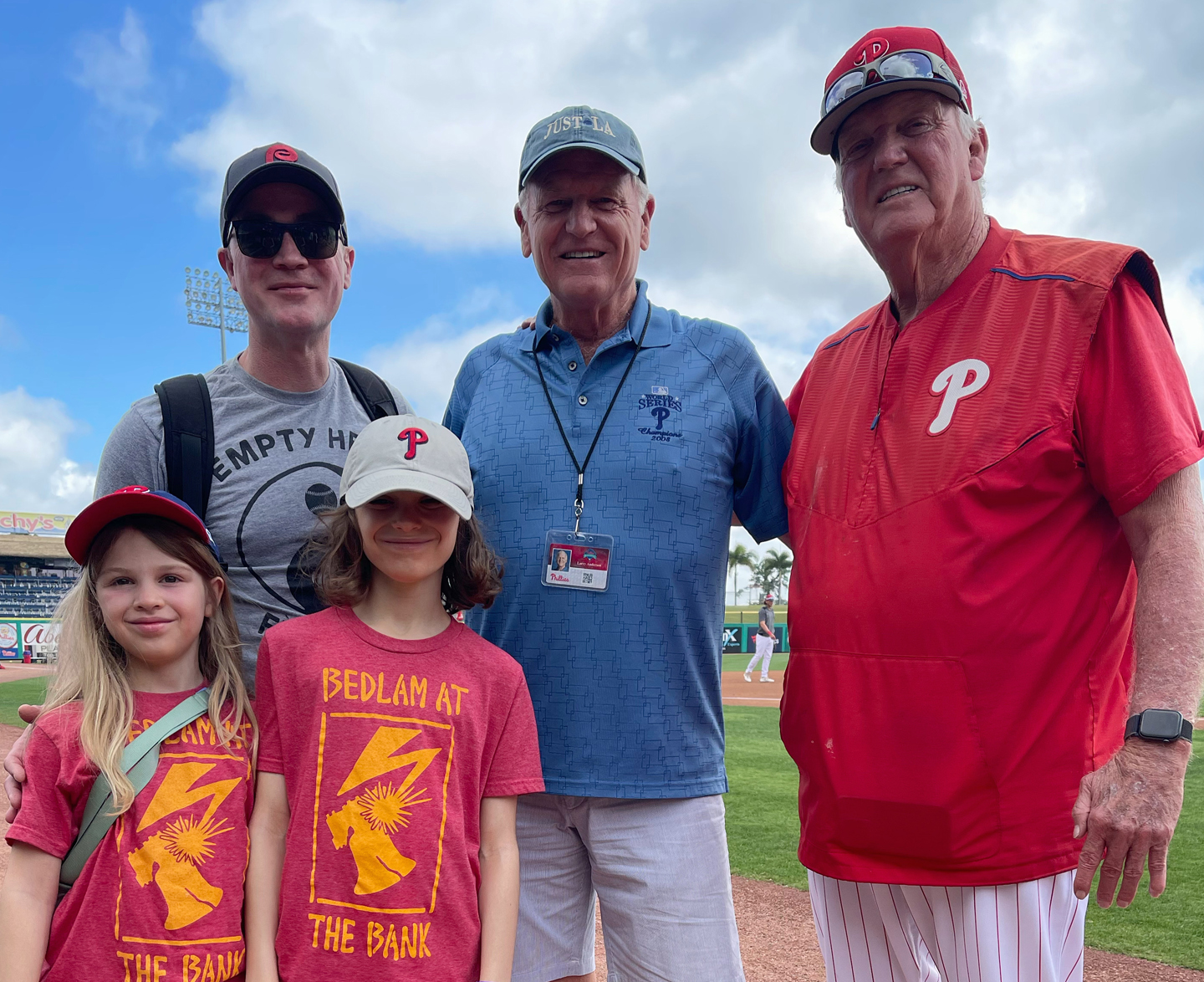
Who were some of the toughest pitchers that you ever faced?
I played against some really good pitchers. Back then, there was Sam McDowell - he was a big left handed pitcher, about 6’ 5” or 6’ 6” - and he threw up around 100 mph. I played against Nolan Ryan. Those Houston Astros always had some real big throwers - like J.R. Richards and Larry Dierker. They had a big rotation, some first class pitchers.
Dean Chance was a big pitcher back in those days. Dick Radatz was a great closer - he was a big guy that threw real hard. When I first got to the big leagues, I got to hit against Ryne Duren - he was a Yankee that was supposed to be wild and threw real hard. Baltimore always had a great staff.
How was playing pro ball in Japan different from playing in America?
It took me a while to adjust. The culture is different. It’s real safe. The pace of living is more easy, and slowed down. But at the same time, too, practice - as far as conditioning - was really hard. It was like being in the Army or the Navy, they were always conditioning their players.
The American Major League players did have more talent, though. The Major Leagues has more players, guys that come from all over. Bigger players, faster, quicker. The Japanese, they catch everything that they’re supposed. But the American game moves faster - they hit they ball harder, and the guys run quicker, too.
Did you always know that you had what it took to be a great manager?
No, not at all. When I was a player, if you had asked did I want to coach or manage I would have definitely told you no. I was always caught up in playing the game, and I wanted to make sure that I did my job and played the best that I could. And for a long time I was a worrier - I hadn’t learned how to relax and stay positive about everything yet.
I was sitting on the bench with the Dodgers one day, when the great manager Walter Alston came up and sat down next to me. He told me, “One of these days, you’re gonna be a manager.” And I thought to myself, “He’s telling me to quit!” Haha, I was about 32 or 33 years old and he’s telling me that I should give up. I thought I was the least likely guy on that field to be a manager. He also told me, “I’ll give you a little advice: every team in the major leagues has guys that quit. When you get to be a manager, make sure that you weed out your losers.” And I’ve always thought of that.
And then, when I did stop playing, I loved the game so much that I wanted to hang around it and teach. So I worked as a hitting coordinator and crosschecker scout. Then the next year, I want to say it was 1983, the Twins offered me a job in the Midwest League, managing the Wisconsin Rapids. I had never managed, but then I thought about what the guy I work for - George Brophy - told me, and that was that I’d have everyday to work with my hitters, and that they’d like me to just manage the team. So I started managing, and I really enjoyed working with all the players. I managed ten years in the minor leagues, and I managed in an Instructional League, but I never thought of managing or coaching in the big leagues. But the more I did it, I found myself looking around and thought, “Why wouldn’t I want to accomplish things that other people set out to do? Why would I always want to be a minor league manager?”
I was fortunate enough to be around some really good players, in a good organization. And we developed a lot of them. I say it all the time, but my players got me to the big leagues. My passion for the game was always there, and if you want to know the truth, I looked around and I saw other people manage, and I thought, “I’m better than that guy, and I want to manage.”
Who were some of the best players that you ever coached?
There definitely would be two of them, as far as everything about the game, the kind of person that they are, the professionalism that they bring, the energy, the life… I would say Kirby Puckett and Chase Utley.
Kirby Puckett was more affable - very flamboyant, hustled all of the time. He was a really talented player, and a very vocal leader. Utley was completely different, as far as his makeup. Chase was the most prepared player that I ever had. He was always the first guy out on the field, the first guy stretching. He never talked about things that he did well. He used to tell me, “Charlie, the fans will let me know how good I am.” And I agree with that. But he hustled all the time - and not only that, but he was a great hitter.
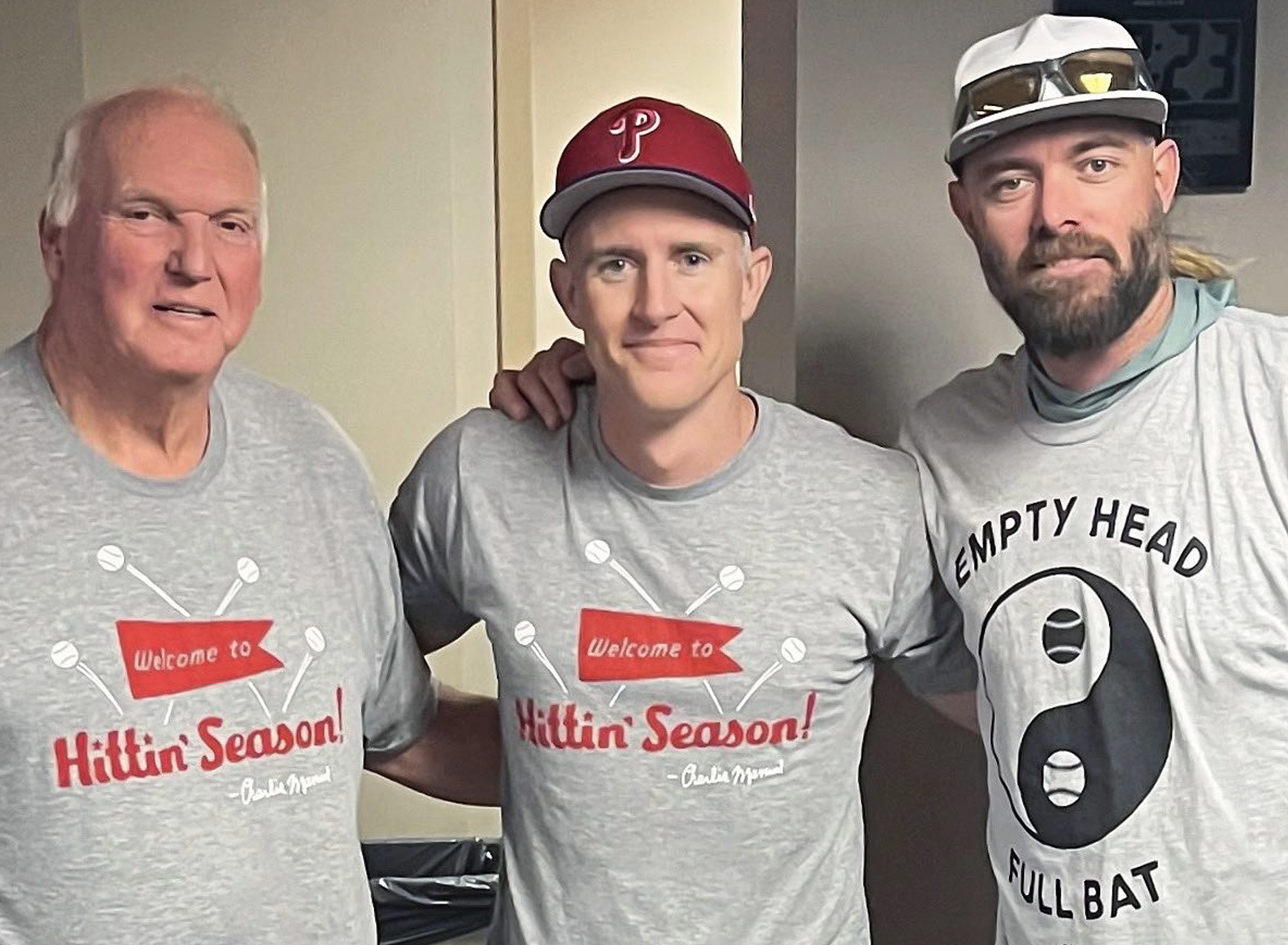
When did you realize that the 2008 Phillies were destined to win it all?
We got beat in the playoffs in 2007 - we lost three straight games to Colorado. And after that third game where we got beat, I came in the clubhouse and it was sad. The next year, in 2008, when we got to Spring Training - usually on the first day of Spring Training I get up and give a speech - and when I got up in 2008 I gave a short speech. And the reason I did that was because of how I felt about our team. How I’d seen them react to losing, and how prepared they looked. We were ready: focused on winning, and focused on being the best team that we could be. And during the season I always felt good about that team. And we were behind in the race that September, but I told Pat Gillick that we were going to win.
And then we got in the World Series, and we faced a good Tampa team. But not only did we outplay them, but our pitching was great - especially our left-handed pitchers, Jamie Moyer and Cole Hamels. Tampa was such a good, young, fastball-hitting team. But we had experience as far as pitching goes, and we threw a lot of changeups and curveballs. And we won that World Series. But that was a special team - they loved to play, they liked playing in front of the crowds, and they wanted to play baseball right. And the guys in our clubhouse were like brothers.
What’s it like playing and managing in front of the postseason Philly crowds?
Our fans and the people at the ballpark create the energy for you to play well. I’m a firm believer in that. The fans going to the ballgames definitely play a part in our success. And in Philadelphia, when we get loud at the ballpark, it makes it hard for the other team to concentrate. But at the same time, we just have to stay focused on what we’re doing. We’ve got the talent and we’ve got the coaches, and we definitely can do it.
Describe your perfect day in Philadelphia.
My perfect day in Philadelphia would be me getting up in the morning, and I would be at the ballpark by 9:30 or 10:00 am. And I would go in my office and sit down and go over all the information, like scouting reports and things like that. Matchup sheets between pitchers and hitters. And when I got that done, I would write up my lineup for that day. And by then I’d probably take a short nap, and get ready for the game.
We’d have early practice, probably 2:30 or 3:00, and after that the other team comes in and hits. We’ll take batting practice after they do, and then the game would start. Once the game starts and I’m at the ballpark - I’d say that’s my perfect day.
What’s your favorite memory from 2008?
Without a doubt, the parade. In that parade, everything about it was so real. The night we won the World Series and the next day when we go downtown, you look around and everywhere that you look - left, right, starting ahead - the streets are just completely crowded. And they’re up in buildings and people are out on balconies. Everything about it was just so real, and everybody there was really happy. It’s a feeling that’s hard to describe - but it was a very good feeling.
What’s the Phanatic really like?
The Phanatic? I love the Phanatic - we’ve done video with him for TV. Been on cruises with him, and he’s absolutely a funny guy. He loves what he does - he loves people, he loves children. At the ballpark, I used to stand in the dugout during the game, and at times I used to watch him, and he would make us laugh. He gets a kick out of getting people to laugh, and also getting to know them.
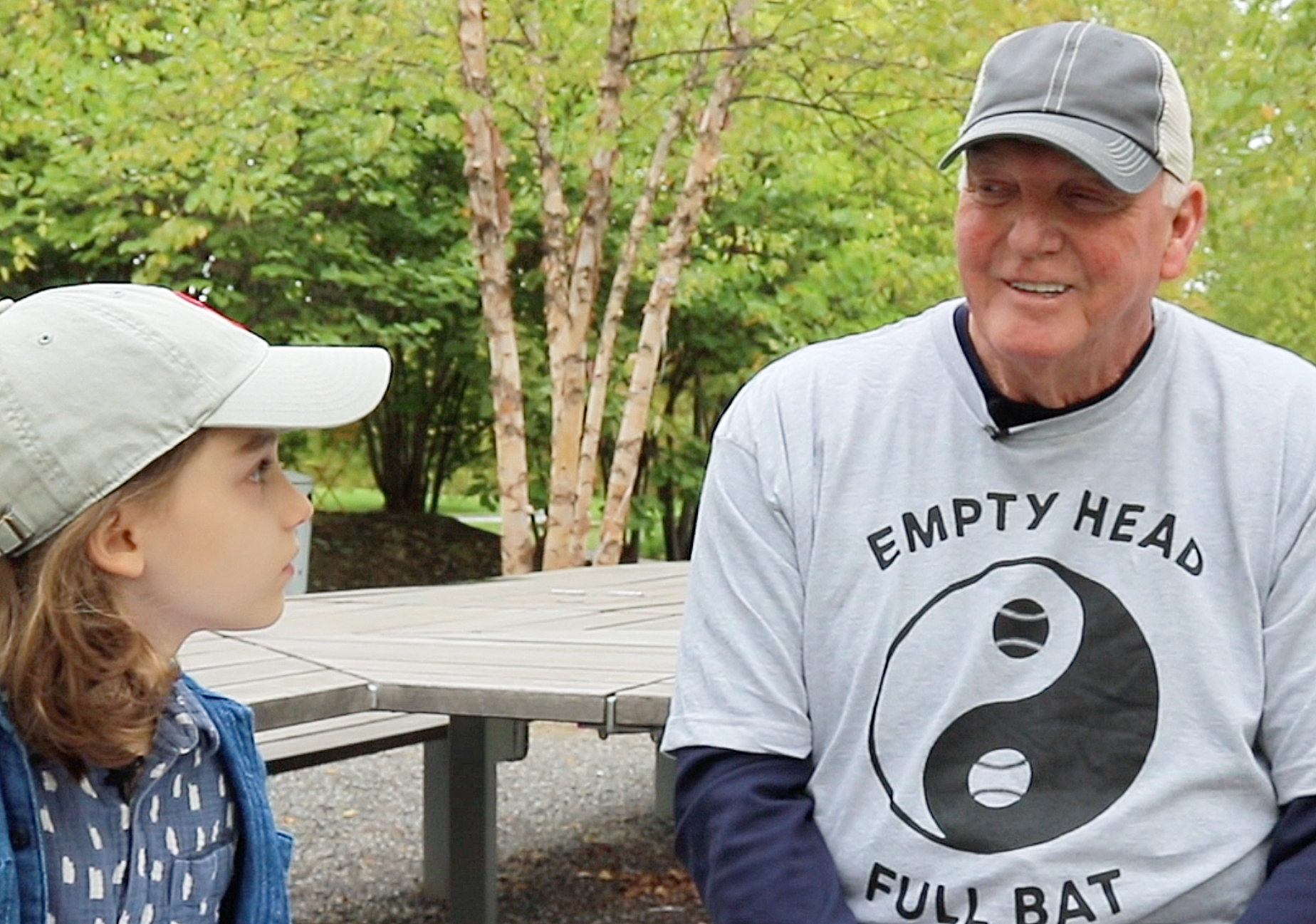
What’s your favorite sandwich in Philadelphia?
My favorite sandwich would be a corned beef sandwich from Famous 4th St Deli. You should see how big they are - all their sandwiches are good. They give you a lot of food, but at the same time it is delicious - it’s my favorite place to eat.
Who are your favorite current players to watch hit?
When I think about the current Phillies players that I like to watch hit, of course Harper enters my mind because he’s so talented - and the ball comes off his bat real good. I love Schwarber’s swing. But if you ask me who I like to watch hit - I like to watch everybody, as far as watching them hit and being interested in them. I would even like to watch you play.
When I go places, I get a kick out of watching people play baseball. I think I got that from being a hitting coach, being dedicated to the game of baseball, and trying to teach hitters and get the most out of them.
What’s the best hitting advice you have for a young person?
The best advice I can give you today is to practice. Remember when I told you that Ted Williams was my favorite player? He’s probably the most well known hitter outside of Babe Ruth in baseball history. And if you listen to him, at the end of his interviews he’ll say, “Practice, practice, practice.” And it is, it’s about repetition. But that also tells you how much you want to play, and how much you love the game. But the best advice that I can give you right now is to have fun playing - have fun, and keep your hands above the baseball when you swing.
Thanks Charlie! And thank you for reading. Please do stay tuned for more Charlie Knows Best content - we all have a feeling that this is going to be a very exciting Summer in South Philadelphia. Please enjoy the extra special Charlie Manuel story about the lesson he learned from Sadaharu Oh bonus footage below. And as always: be kind, love your neighbors, wear Hog Island Press.
